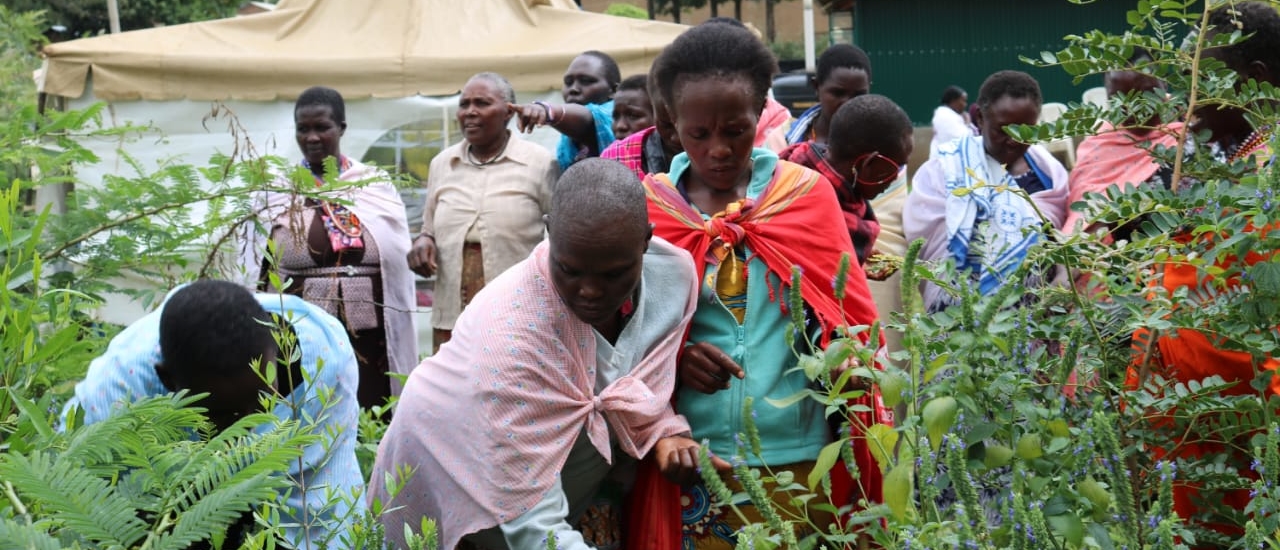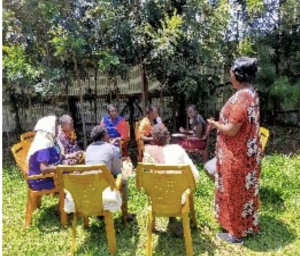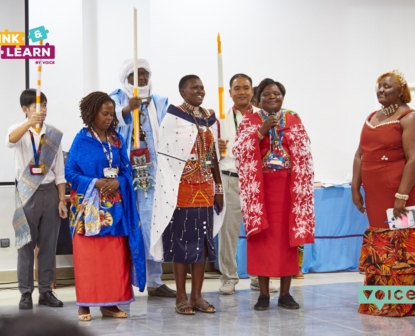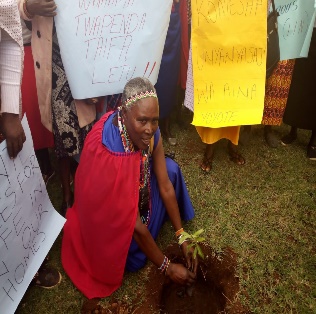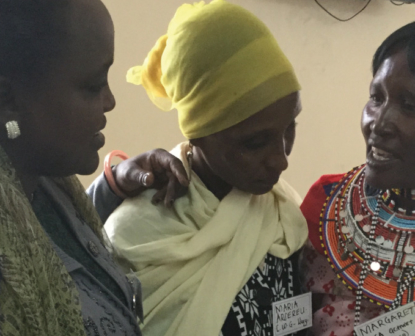Project
Our Land, Our Decision
-
Amount Funded
24,127 EUROProject Duration
01 Oct 2018 - 30 Sep 2020 -
-
Lead organisation
Partners
Indigenous Information Network (IIN)
-
The Indigenous Information Network’s (IIN’s) goal is to empower and protect the rights of indigenous women. They are the host of the Namunyak Lepolosi Women Group (NLWG) an informal member-based women’s group. They currently focus on gaps that have been identified by the women and focus on Marsabit, Isiolo, Transmara (where NLWG is located) and Pokot where the issues of climate change, environment, gender and education are pertinent.Namunyak Lepolosi Women Group (NLWG) has 20 members and is led by a Chair, Secretary and treasurer and 7 other members. Decisions are made by the leadership through a subcommittee that presents the requests of the women. In case of any issues, the committee meets as a group twice a month. Every year the board is given a mandate and should there be changes within the leadership, there is an election for a new leadership team.
-
Organisation
The Indigenous Information Network’s (IIN’s) goal is to empower and protect the rights of indigenous women. They are the host of the Namunyak Lepolosi Women Group (NLWG) an informal member-based women’s group. They currently focus on gaps that have been identified by the women and focus on Marsabit, Isiolo, Transmara (where NLWG is located) and Pokot where the issues of climate change, environment, gender and education are pertinent.Namunyak Lepolosi Women Group (NLWG) has 20 members and is led by a Chair, Secretary and treasurer and 7 other members. Decisions are made by the leadership through a subcommittee that presents the requests of the women. In case of any issues, the committee meets as a group twice a month. Every year the board is given a mandate and should there be changes within the leadership, there is an election for a new leadership team. -
Project
The Our Land, Our Decision project increases women’s access to and control of productive resources specifically land in Transmara County, Kenya by the following objectives:1. Strengthening networks of organised women groups to advocate for their land rights.2. Increasing awareness levels among communities on land rights for women, to know and understand the community land acts, the constitution what does it say on women owning property.3. Improving women’s participation in decision making on land issues and ensure access to land, other productive resources.4. Building effective and efficient project management capacity.
-
-
The Our Land, Our Decision project increases women’s access to and control of productive resources specifically land in Transmara County, Kenya by the following objectives:1. Strengthening networks of organised women groups to advocate for their land rights.2. Increasing awareness levels among communities on land rights for women, to know and understand the community land acts, the constitution what does it say on women owning property.3. Improving women’s participation in decision making on land issues and ensure access to land, other productive resources.4. Building effective and efficient project management capacity.
-
Indigenous women take control of their livelihoods
Land access, rights and control of productive resources remain a key challenge for the women of Trans-Mara County. The Our Land, Our Decision project was set up to increase women’s access to and control of productive resources by strengthening networks of organised women groups to advocate for their land rights, increase awareness levels among communities on land rights for women as per the Kenyan Constitution and Land Acts, improve women’s participation in decision making on land issues and ensure access to land and lastly, build effective and efficient project management capacity.
“Teresia Nashipai is a single woman with disability who has lived with challenges of wanting to own her piece of land which she had been given by relatives. It has been a journey for her but after the trainings on land rights she has now been able to seek help from the area chief and the land office has given her audience and they will sort out all the challenges so that she gets her title deed.”
Overall this project has amplified the voices of women in this community to speak out and engage for their rights. Through the awareness created, the women have learnt legal requirement on how to protect their lands and property and all the productive resources in the family. They have equally learnt about land use and how to prioritize when and what they want to farm, how to do it and how to increase production. They have also learnt about the importance of sustainable use of land, and alternative livelihoods. The women have also been empowered how to advocate for more space to farm from their husbands and family members and that connection between production and consumption goes and why it needs to be planned carefully for their healthy families. The skills received during the trainings have enabled various women groups to confront the authorities and those responsible to claim their access to land and other reproductive resources. Some of the women were able to get their husbands to show them their title deeds

Figure 1 Namunyak lepolosi on the left and Endonyo oo ngopit all in deep discussion on strategies ahead for the project These were achieved through participatory methods and approaches where the women worked together in trainings, community forums, dialogues and workshops using the local language. Whenever Swahili was used, translation was provided to ensure the indigenous rural women understand and contribute effectively. Equally, the team utilized radio and social media to champion their agenda and engage the larger community. Exchange visits allowed more cross learning between the different networks
“Cecilia Kiok is from endonyo oo ngopit ngarua self-help group. After several training on land they are now able to help other women even if not form their own group on issues of land. In her story she tells how they have helped the women to stay back home and assured her of her rights to have a voice in the family property”.
Over time the project was able to attract and reach out to more than the initial target of 50 women who joined the networks to reach over 1200 women. It was learnt that rural indigenous women are very intelligent and have great skills and knowledge and all that they need is recognition, motivation and patience. Additionally, use of the human rights approach enabled the women to share with each other, learn from and appreciate themselves
As part of dissemination the learnings and success, a number of publications were made and distributed among the networks
Of course these did not go without challenges as the internal tribal conflicts as well as the government curfews and COVID 19 restrictions interfered with the project’s work due to the limited movement and gathering.
“I am looking forward to receiving the title deed to my land. Despite the long journey, I am glad that I have been able to engage the chief of the area and the land office who will sort out the challenges I have been facing.” Teresia Nashipai
-
News

